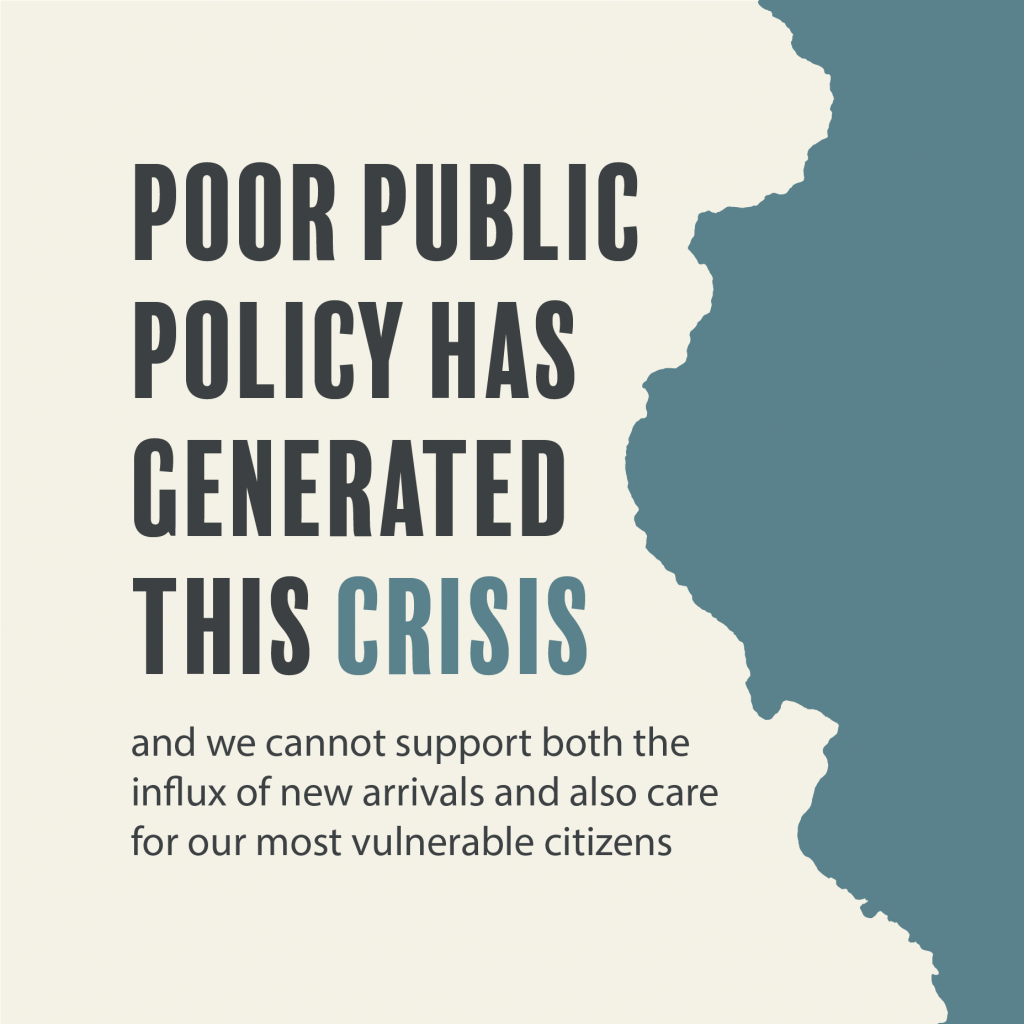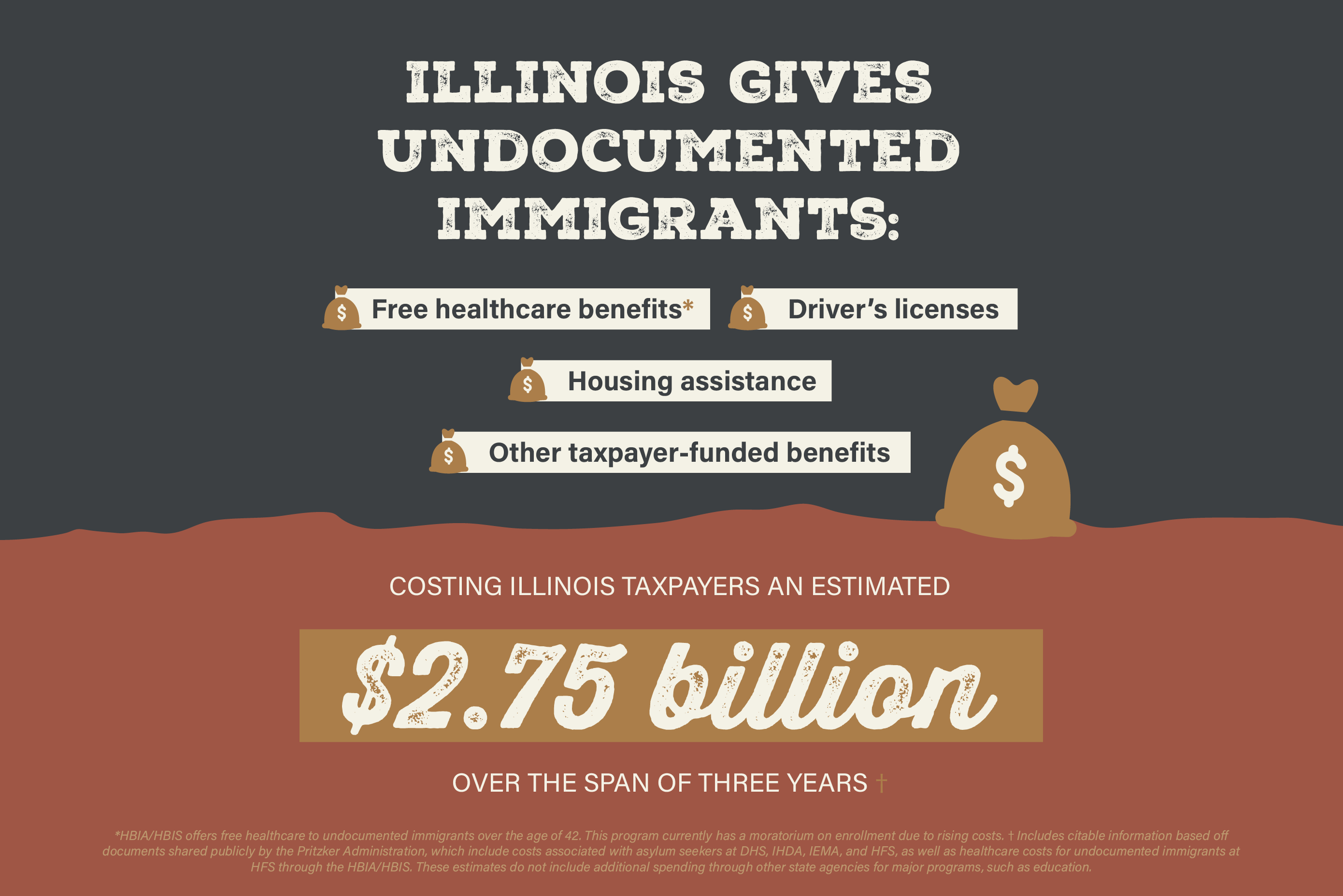The national debate on immigration continues to intensify, and California’s recent proposal to offer housing assistance to undocumented immigrants has placed even more attention on how states handle the crisis at hand. The proposed bill in California would allow undocumented immigrants to apply for state-backed home loans of up to $150,000, and with Chicago’s migrant crisis making headlines throughout the year, we must ask ourselves, “is Illinois next?”

Illinois has long been recognized as a sanctuary for undocumented immigrants, reinforced by the Illinois TRUST Act passed in 2017. This act prevents law enforcement from working with or communicating with federal immigration authorities regarding a person’s immigration status unless there is a federal criminal warrant issued.
Illinois has also expanded healthcare coverage for undocumented immigrants, with the state’s program providing healthcare benefits expected to cost nearly $831 million for the fiscal year 2024—far exceeding the $550 million that was budgeted.
Illinois lawmakers such as State Representatives C.D. Davidsmeyer and Mike Coffey have pushed back.
“Illinois Democrats ‘sanctuary state’ policies are a huge burden on the people of Illinois,” Davidsmeyer said. “Unfortunately, Democrats have built an entire support system for individuals who have broken into our country illegally; which includes free healthcare, driver’s licenses, housing assistance, just to name a few. This is all funded by hard-working Illinoisans and small businesses who do not have access to these same benefits.”
A significant concern tied to Illinois’ immigration policies has been the increasing cost of healthcare for undocumented immigrants. The state’s expanded healthcare coverage for this population is expected to exceed $831 million for the fiscal year 2024, well above the original $550 million budget. In response to these rising costs, Davidsmeyer, Coffey, and several other lawmakers have co-sponsored House Resolution 220, which calls for a moratorium on new enrollees in the state’s healthcare program for undocumented immigrants. The resolution also urges a state audit to assess how these services are administered and the financial impact on Illinois taxpayers.
Davidsmeyer has also introduced House Bill 5846, co-sponsored by Coffey, which proposes additional regulations to control benefits for undocumented immigrants and aims to ensure greater fiscal responsibility in managing healthcare programs. This bill reflects a growing consensus among Illinois Republicans that further steps must be taken to curb the costs associated with immigration-related policies, particularly as healthcare expenses continue to climb.
“These bills represent necessary steps to address the unsustainable financial burden on our state,” Coffey remarked. “We cannot continue to offer such extensive benefits without considering their impact on Illinois residents who are struggling with their own healthcare needs.”
The opposition to the TRUST Act and other pro-immigration policies in Illinois comes against the backdrop of broader national debates on immigration and sanctuary policies. California’s attempt to provide state-backed housing loans to undocumented immigrants, which was widely debated and ultimately vetoed by Governor Newsom, reflects the growing tensions between those who advocate for stronger protections for immigrants and those who argue that such policies are financially irresponsible.
The financial toll of these policies cannot be ignored.
As California grapples with its own immigration and housing policies, Illinois faces similar challenges. While it is unclear whether Illinois will follow California’s proposed path in offering state-backed housing loans for undocumented immigrants, the debate is far from over. Illinois House Republicans are working hard to ensure that Illinois prioritizes the needs of its citizens.
